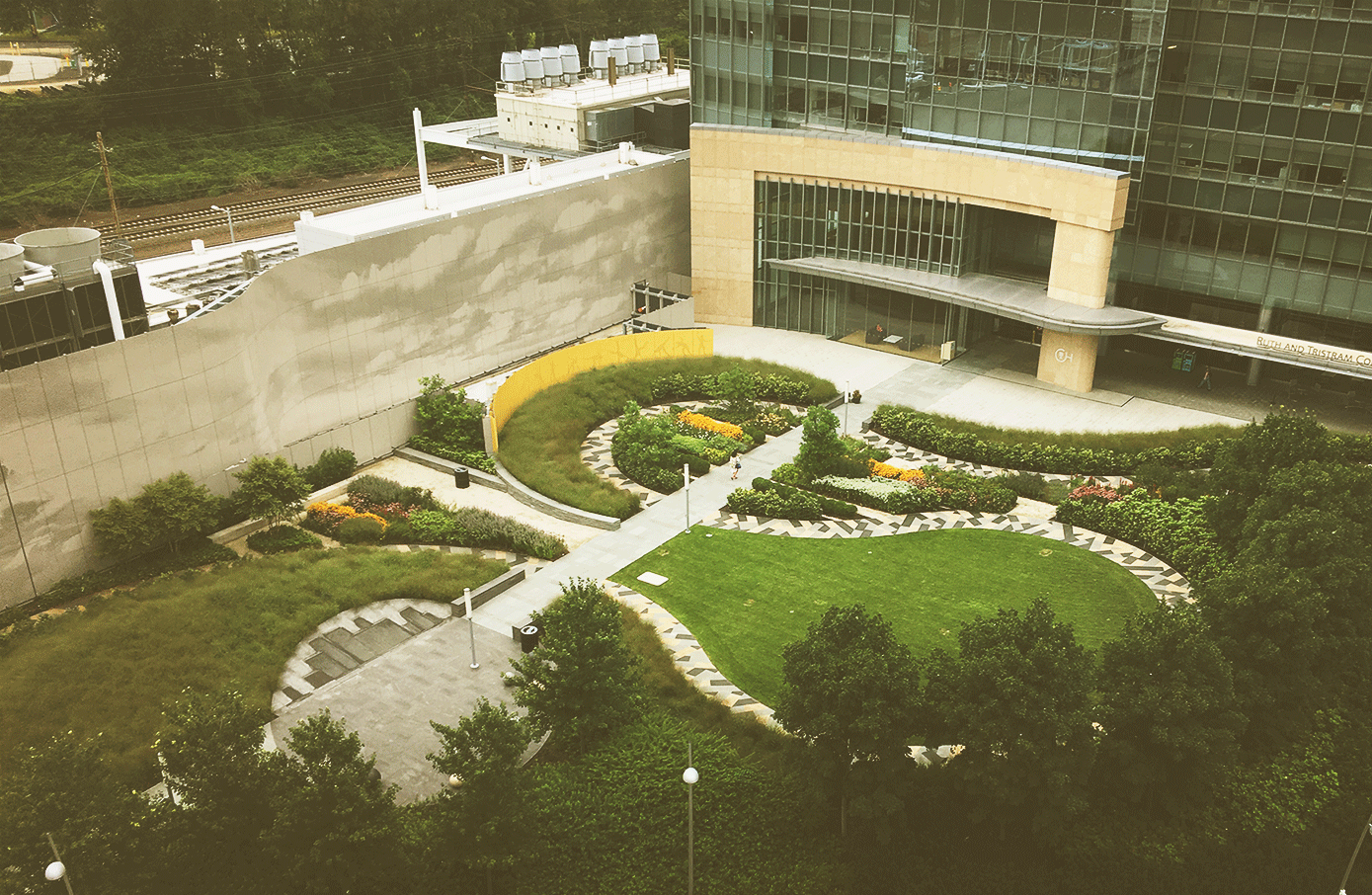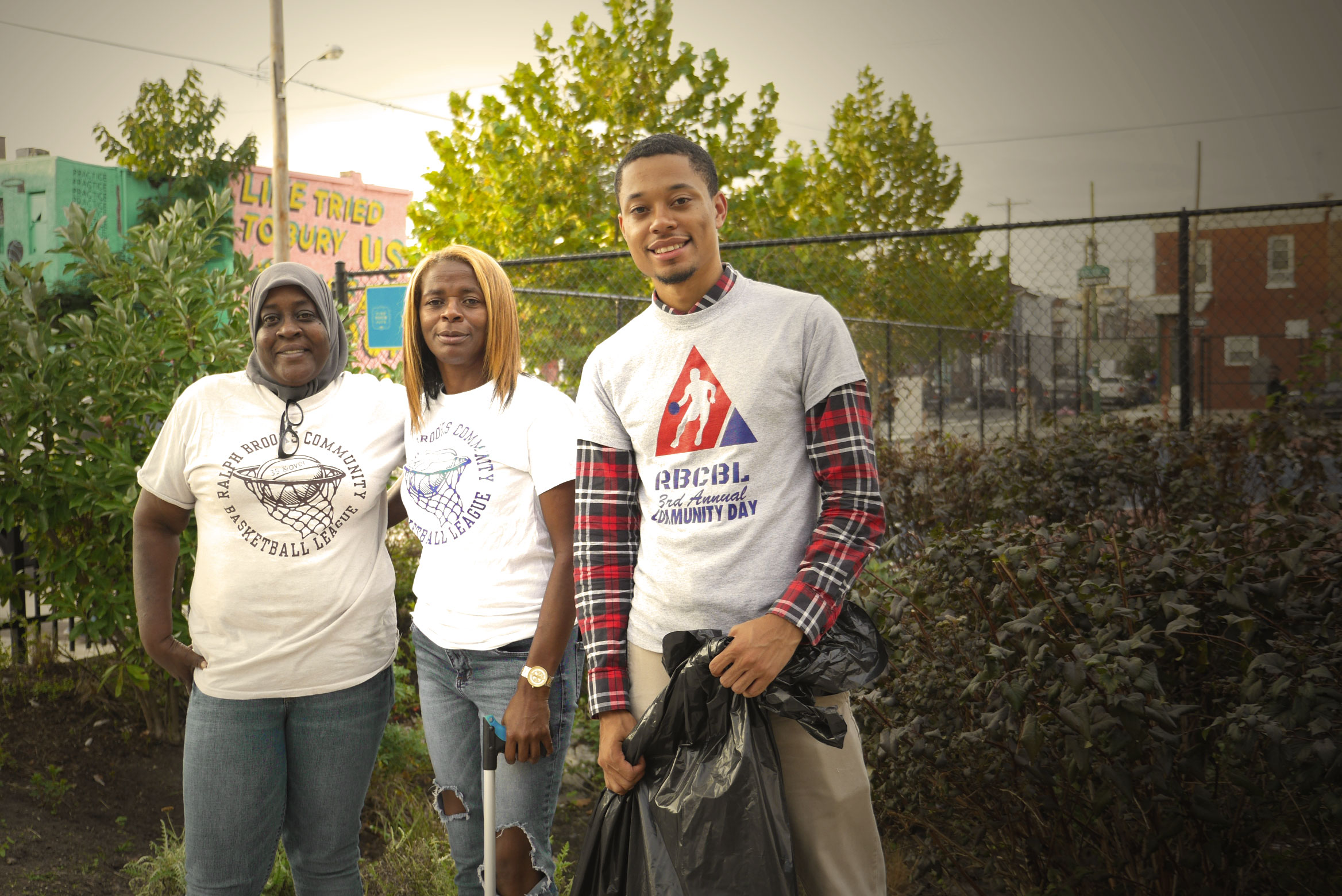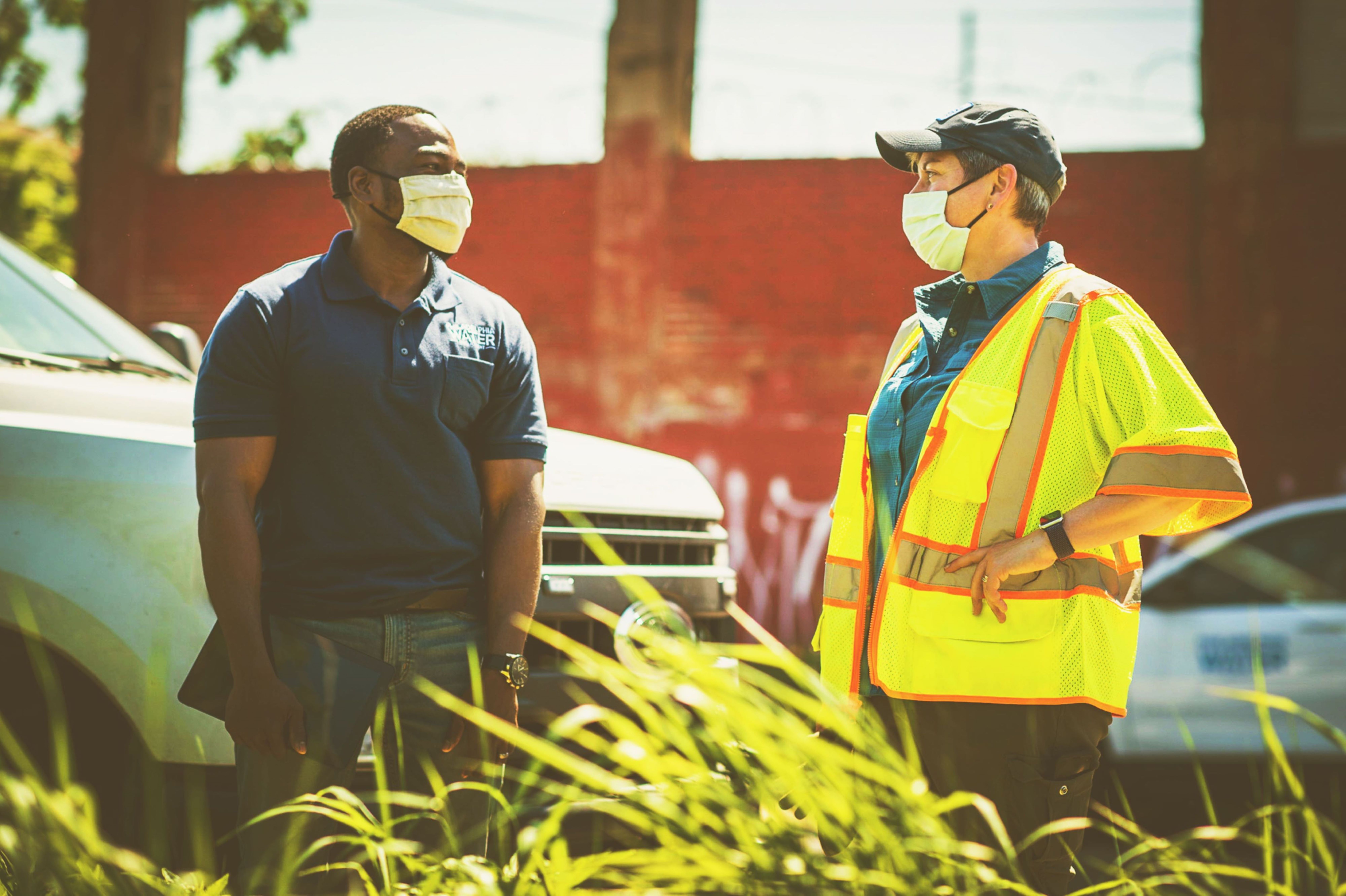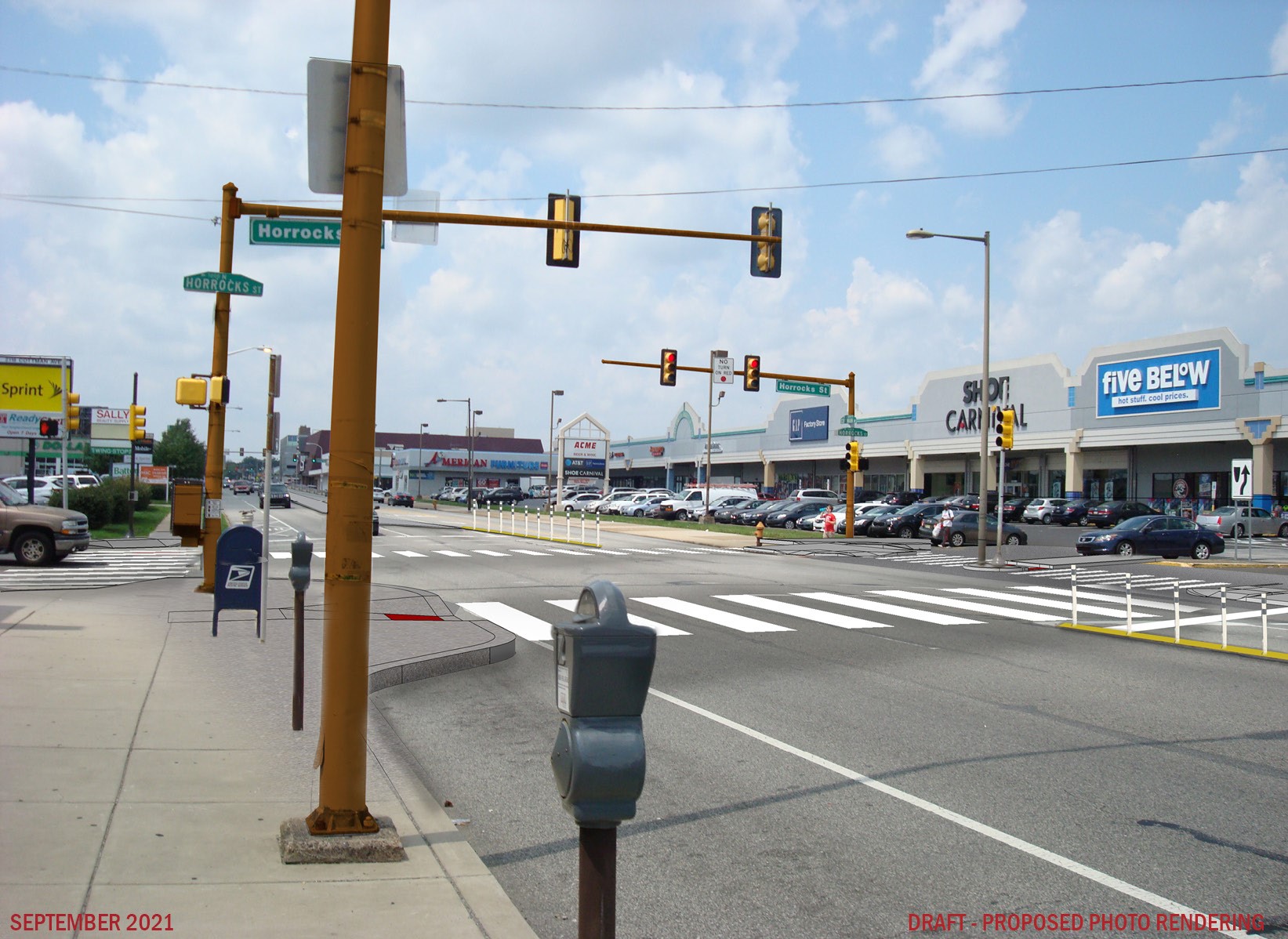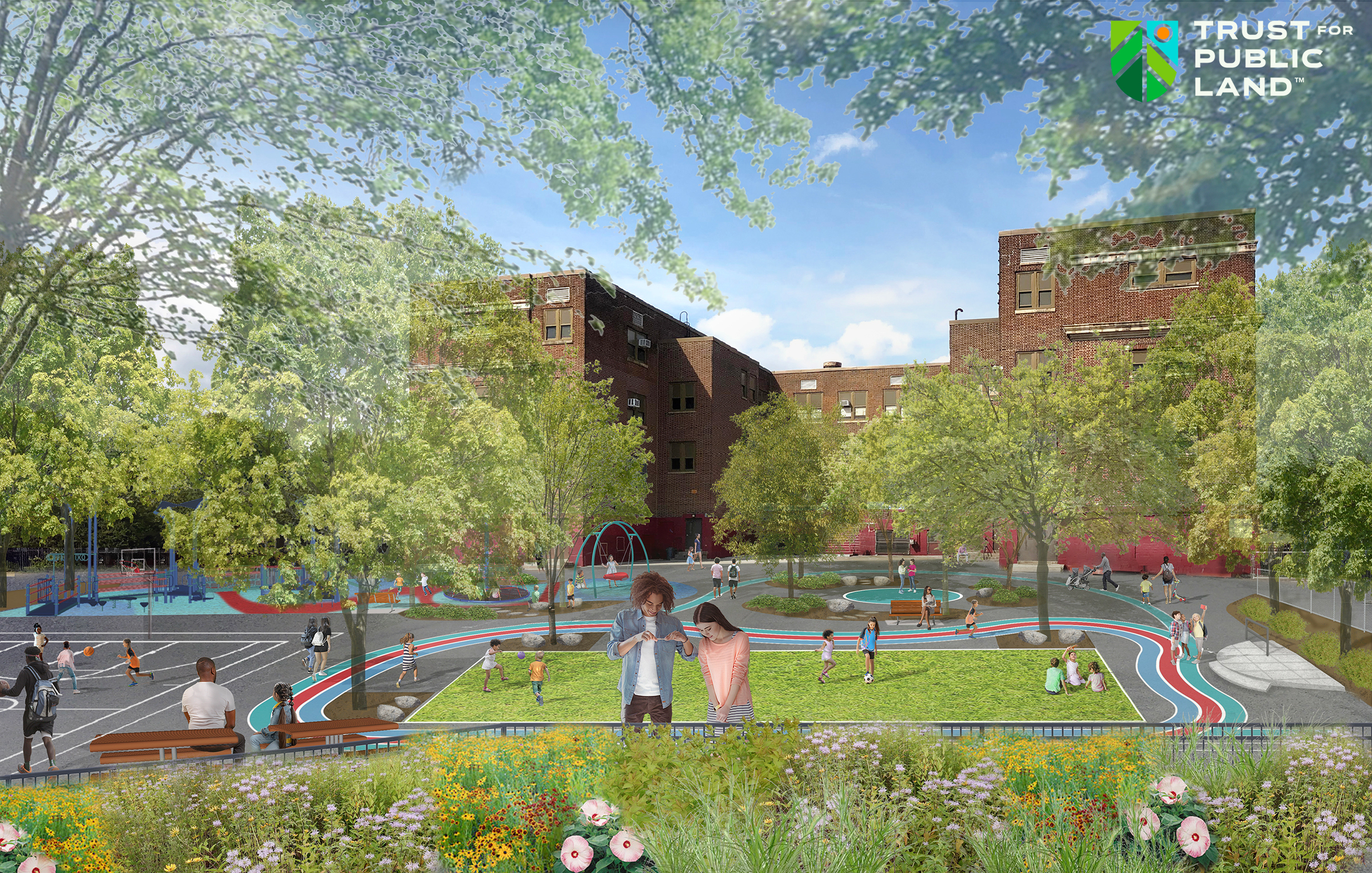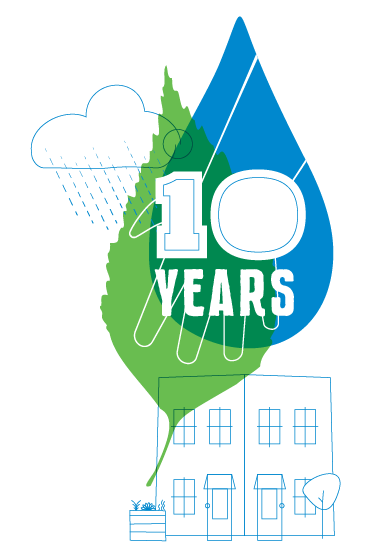 When the Water Department created Green City, Clean Waters 10 years ago, a key factor in the plan’s success would be growing a green economy through collaborations with local businesses, including granting hundreds of millions of private dollars to manage stormwater where it falls…
When the Water Department created Green City, Clean Waters 10 years ago, a key factor in the plan’s success would be growing a green economy through collaborations with local businesses, including granting hundreds of millions of private dollars to manage stormwater where it falls…
With commercial impervious sites contributing significant stormwater runoff, we crafted a multifaceted program to work with both new and established businesses to enhance their properties with green tools and reduce monthly stormwater bill charges — all while helping to protect local creeks and rivers.
Our Stormwater Management Development Regulations and Stormwater Incentives Program create pathways for participation from a variety of players, including businesses (both small and large), faith-based institutions, hospitals, and other nonprofits.
“We would not have reached our 10-year targets had it not been for the businesses who trusted us along the way,” says Beth Anne Lutes, the Water Department‘s Manager for Stormwater Billing and Incentives. “They are happy with lower bills, their neighbors are happy they’re enhancing the community, and the Water Department is happy we’re helping the City manage stormwater runoff.”
Industries and businesses are responsible for almost half of the nearly 2,000 Greened Acres implemented in Philadelphia since 2011. As a reminder, each Greened Acre manages nearly 30,000 gallons of stormwater runoff during a one-inch rainstorm (or about a SEPTA bus-sized load of polluted water!).

Boosting Business with Stormwater Management
While researching solutions to Philadelphia’s stormwater concerns prior to the launch of Green City, Clean Waters, the Water Department found that a significant percentage of the City’s commercial and industrial sites contained impervious surfaces.
As rain falls on impervious surfaces, it usually doesn’t soak into the concrete and transforms into stormwater runoff. (As you may recall, the largest source of Philly’s water pollution occurs when the combined sewer system is overwhelmed by this localized runoff, which causes pollution to overflow directly into our waterways.)
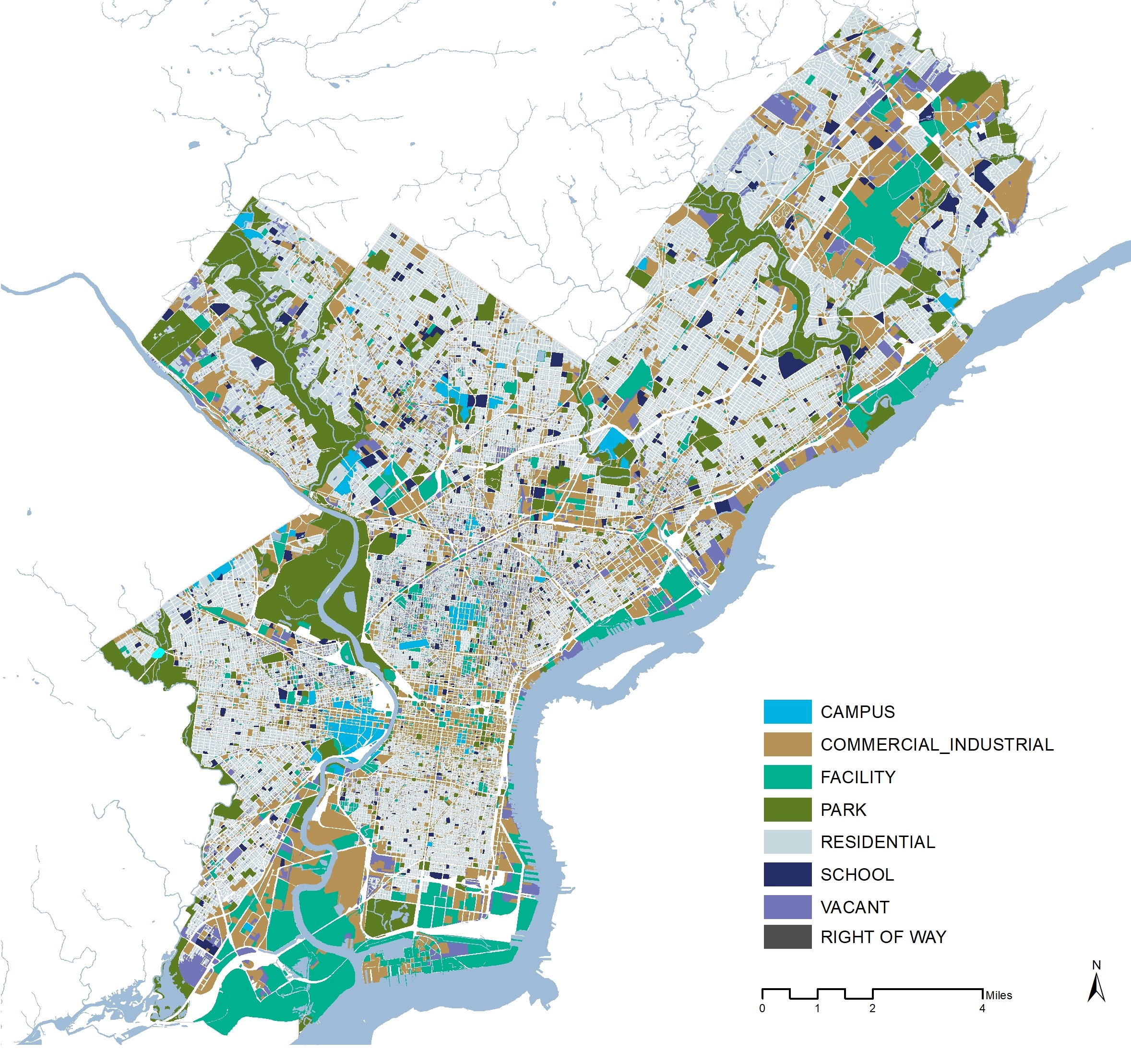
This map shows the entire city’s land uses broken down by ‘type’. Here, commercial and industrial sites are shown in light brown.
Along with state and federal water quality regulations, in 2006, the Water Department instituted its own set of stormwater regulations for all development projects that disturb more than 15,000 square feet of earth. The Stormwater Regulations have four main components: Water Quality, Channel Protection, Flood Control, and Public Health and Safety Release Rate requirements.
In Philly, all properties pay a stormwater fee; the residential fee is flat, and the non-residential fee is based on the property’s size and the amount of impervious surface it contains. In addition to the implementation of Stormwater Regulations, the Water Department transitioned from a meter-based stormwater charge to a parcel-based stormwater charge in 2010. These fees not only help fund Green City, Clean Waters projects but also help the city comply with state and federal water quality regulations.
Find out more about stormwater charges on your bill →

Incentivizing Stormwater Management (by the $ millions!)
![]() Concurrently, the Water Department also developed comprehensive incentives to encourage non-residential properties to install green stormwater infrastructure.
Concurrently, the Water Department also developed comprehensive incentives to encourage non-residential properties to install green stormwater infrastructure.
The incentives include a Stormwater Grants Program, which helps fund the design and construction of stormwater retrofit projects, and a Stormwater Credits Program, which generates a reduction of stormwater charges on monthly bills.
Since the start of Green City, Clean Waters a decade ago, $158+ million in grants have been given to non-residential properties to install green stormwater infrastructure city-wide.
This Fall, $20 million in grants will be given to private and non-city-owned properties for installing green stormwater infrastructure. (Learn more to get your share!)
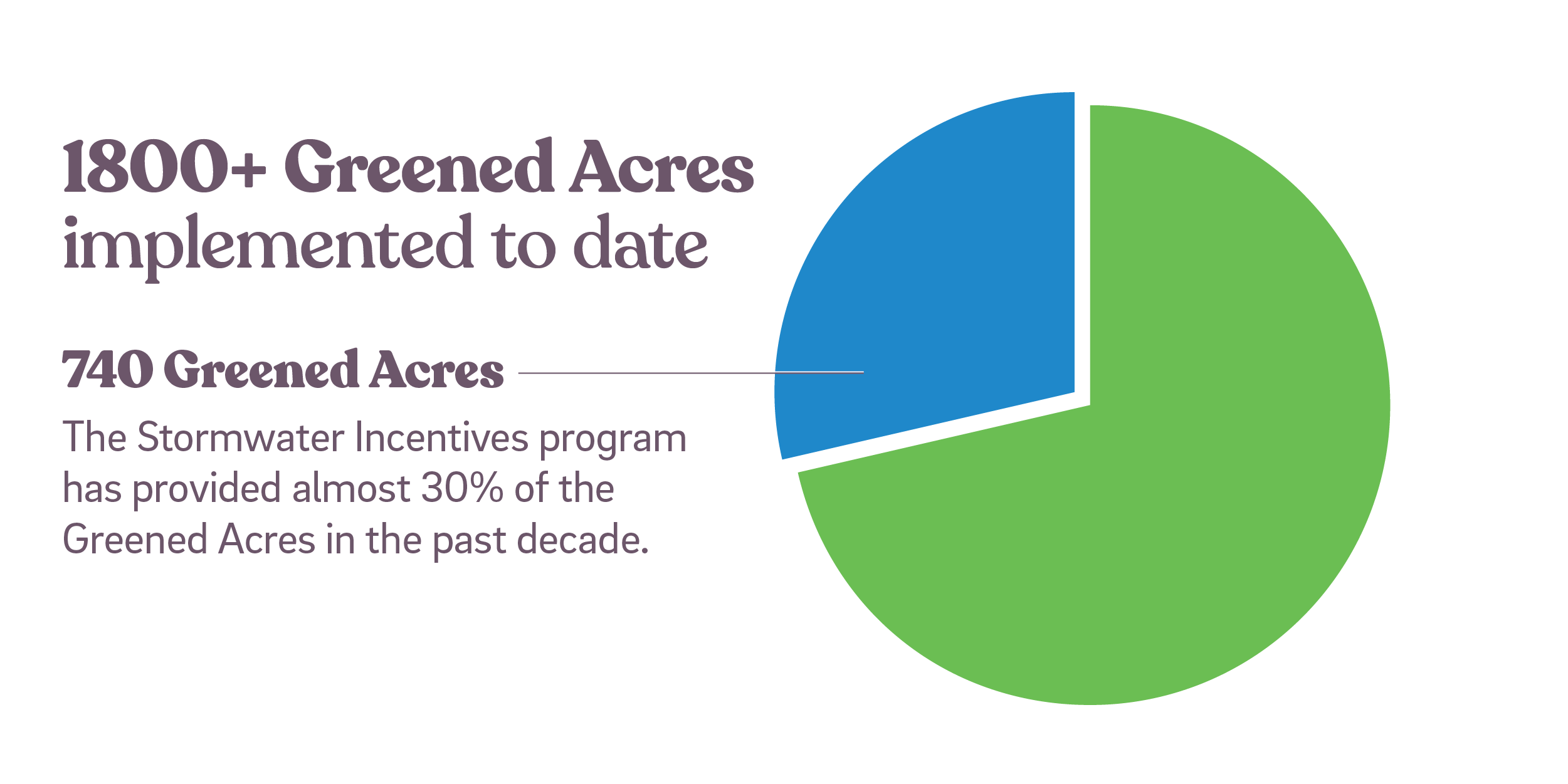
Nearly 30% of the Greened Acres implemented to date were made possible by non-residential properties taking advantage of our Stormwater Incentives.
Through the Water Department’s Stormwater Regulations, Stormwater Grants, and various incentives, businesses can install new green stormwater infrastructure or retrofit existing parcels to help manage this runoff. To a passerby, this might look like a new rain garden or green roof on a previously impervious surface at a neighborhood store.
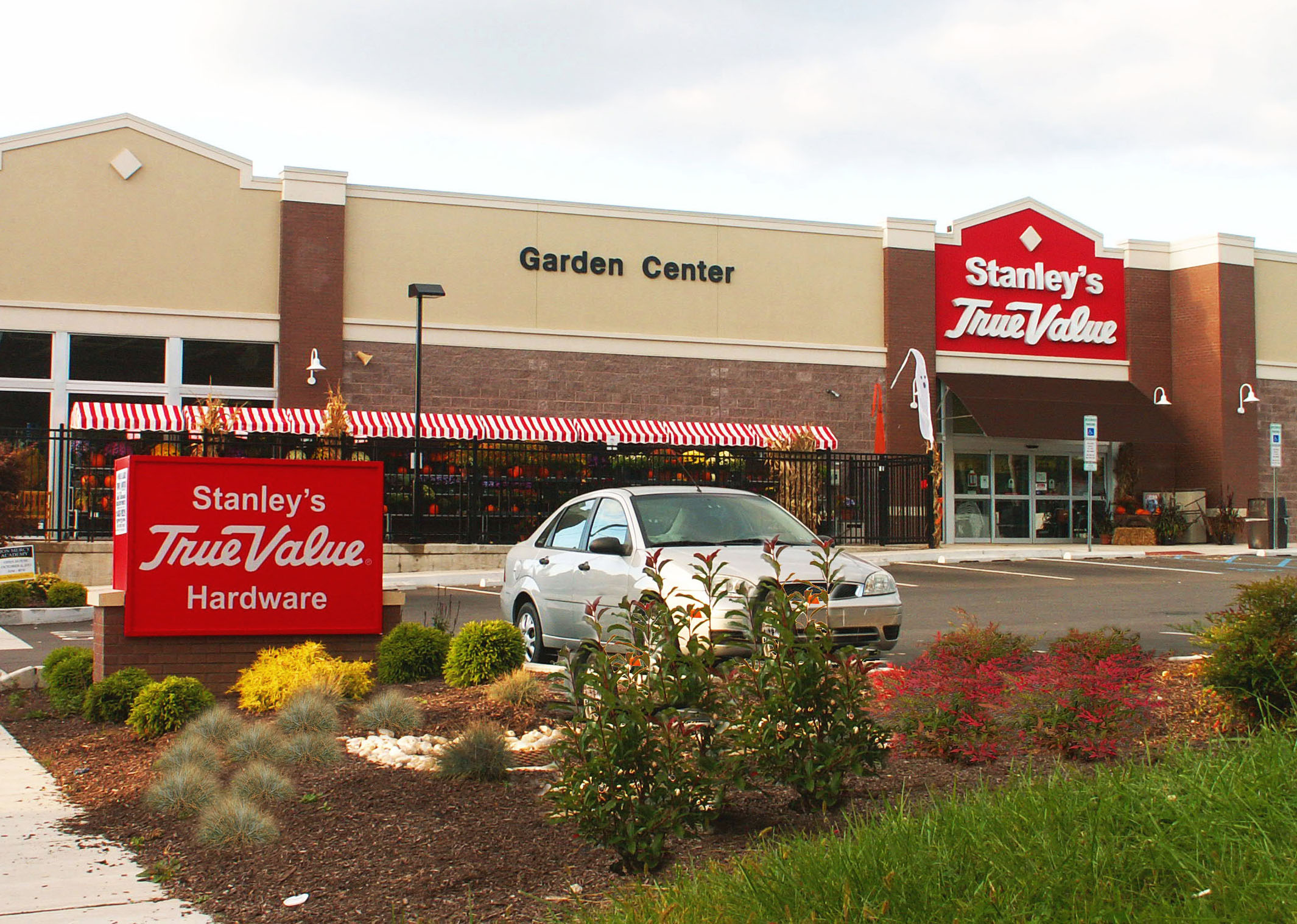
Stanley’s Hardware installed two underground infiltration basins and a rain garden as part of a major construction expansion to the Roxobourgh store. The basins were designed to hold up to 25% more volume than required. Plus, the 7,000 sq. foot addition led to new lines of business, including a garden center.
“What I like about [the GSI] is the rain garden. Customers are actually in awe of how beautiful it turned out…We're hoping to keep trash and debris out of the river so that future generations can enjoy a clean river,” says Joseph Jaconski, co-owner of Stanley's Hardware, a 2014 development project that met PWD Stormwater Regulations.
“We like to take every opportunity to explain to them that it's actually part of a stormwater management system that allows us to deal with our stormwater right on our property,” says Mark Jaconski, co-owner of Stanley's Hardware.
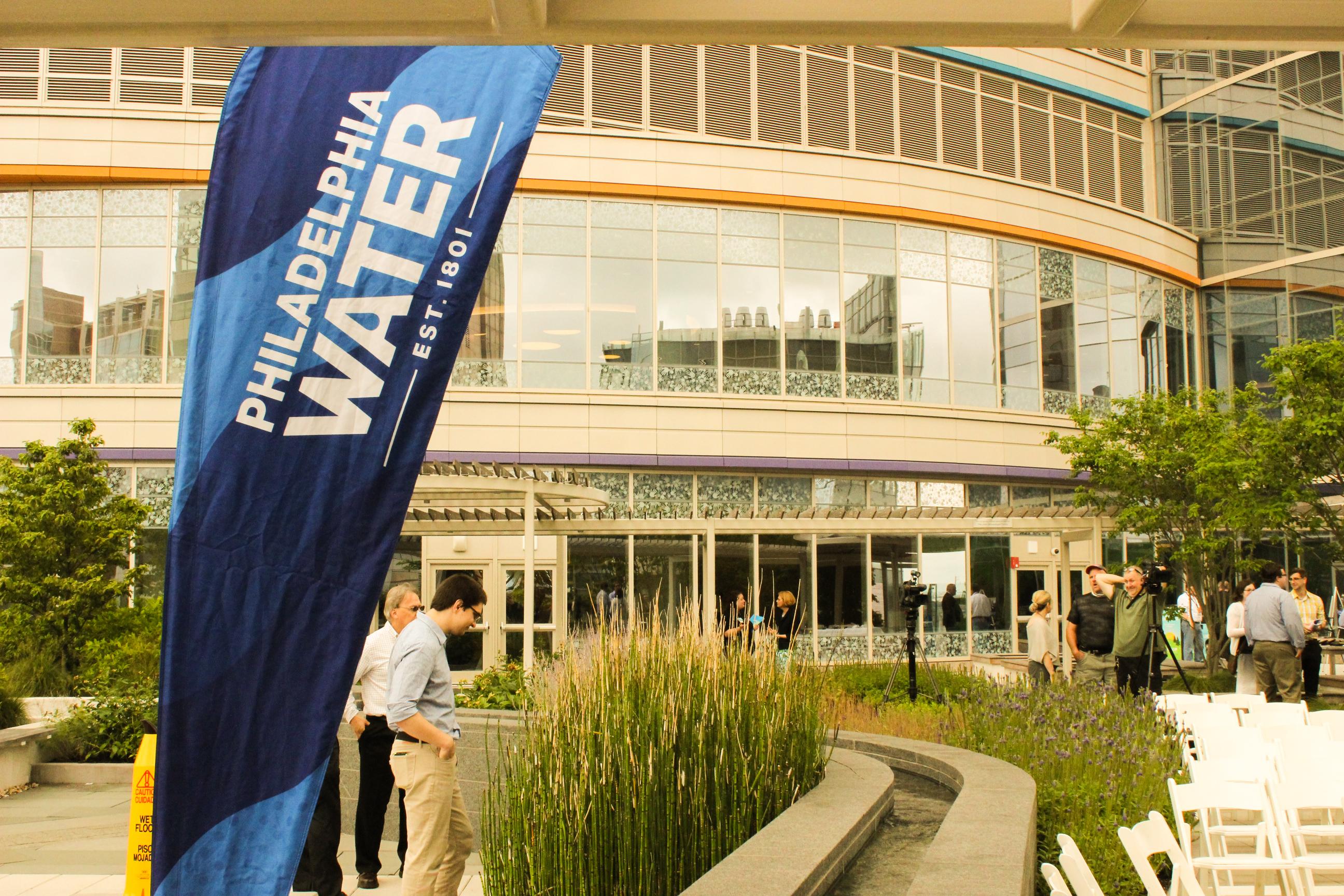
While rain falls on the green roof and ground-level plaza of CHOP’s Buerger Center, stormwater runoff is captured and then pumped into massive storage tanks. Fiberglass tanks can manage more than 70,000 gallons of water and hold over 115,000 gallons at full capacity. This greenery also serves as an oasis for exploration and healing for both young patients and their loved ones.
“Children's Hospital has six million square feet of office space in this main campus location. But we had very little green space. It's a little piece of nature for patients and families to enjoy,” says Doug Carney, the Children's Hosptial of Philadelphia's Senior Vice President for Facilities, Real Estate, and Capital Program.
From site plans and green tool designs to construction and inspection, the Water Department partners with businesses and the surrounding community during every phase of infrastructure development and implementation.
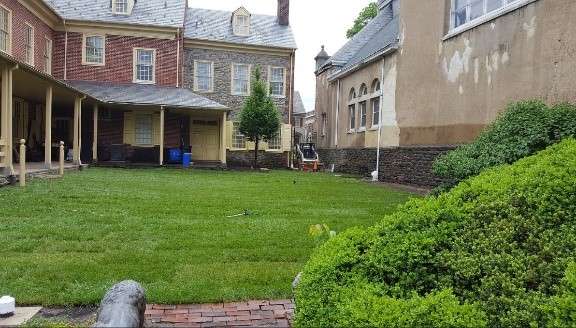
Historic Germantown was fundraising to transform its asphalt courtyard when it discovered PWD’s Stormwater Grants. Beautifying the space through this community-powered initiative, the site earned the Pioneers award — not only for installing a new rain garden and courtyard but also for its commitment to the Germantown neighborhood.
“It’s really come to serve the purpose of bringing together the entire community—staff, volunteers, neighbors—everyone involved seems to feel invested in this project and in maintaining the majesty of this wonderful community asset,” says Trapeta Mayson, who served as Executive Director of Historic Germantown, a 2018 Stormwater Grants recipient.
After the installation of green stormwater infrastructure, both voluntary and mandated projects on non-residential properties are eligible for Stormwater Credit and nominations as a Stormwater Pioneer, which celebrates premier stormwater management on private property.
Through our Credits program, property owners qualify for significantly lower stormwater charges on monthly bills due to both the reduction in the impervious areas on-site and the ability of green tools to manage more stormwater runoff. Learn more!
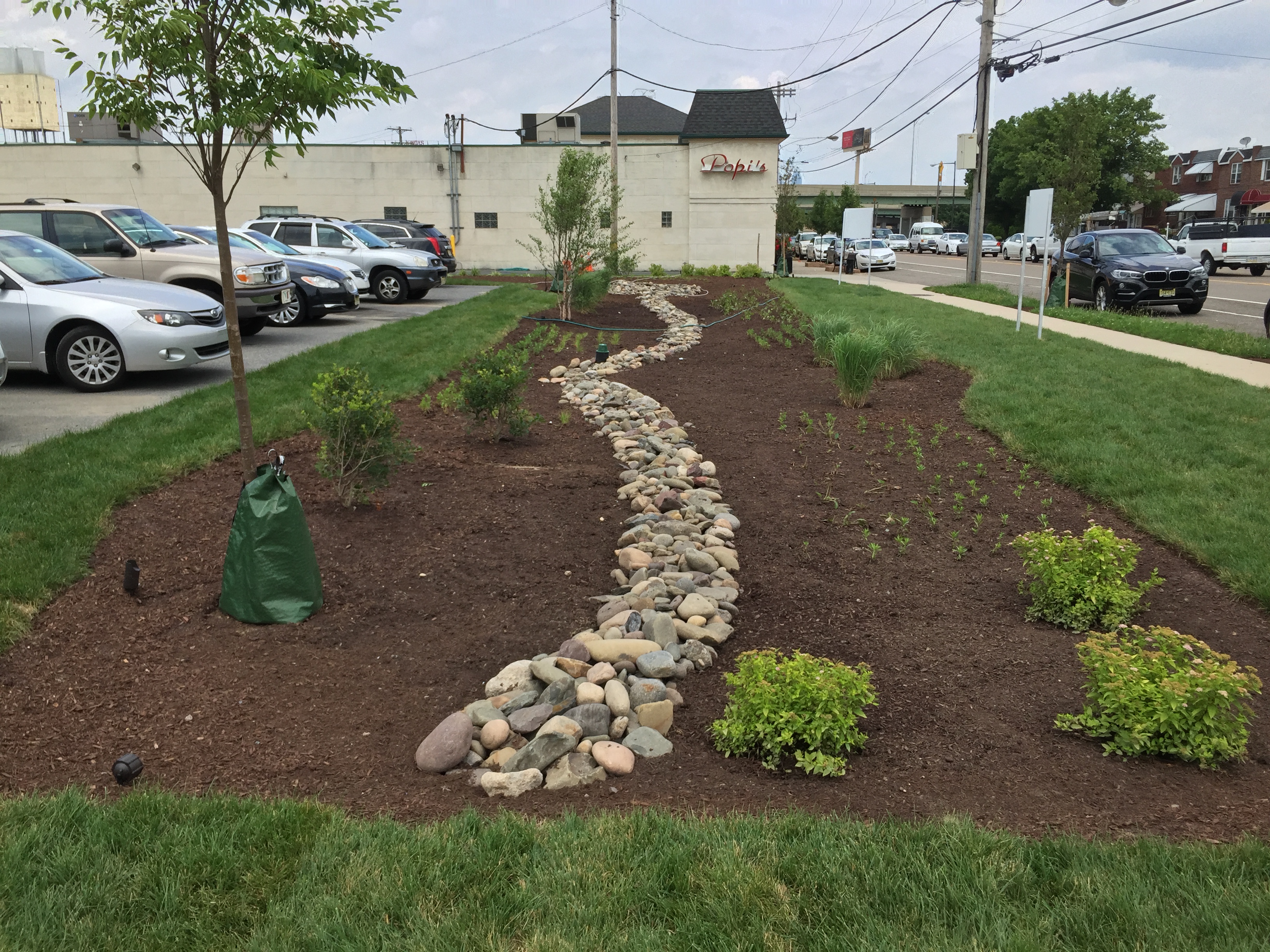
Through the Stormwater Grants Program, Popi’s, a family-owned restaurant, was awarded nearly $95,000 to construct rain gardens on its parking lot. The tools were designed to capture runoff during a one-inch storm— about 11,400 gallons of rainfall (equivalent to almost 163 bathtubs). During that year, their monthly bill decreased from $350 to $130!
“I love the rain garden, I love the trees, I love the flowers. I love what it does to the parking lot. I love what it does for Popi's and I love what it does for the neighborhood. Now, I understand that the water that runs off of my property and into the sewer, allows waste to go into the river and costs the water company an exorbitant amount of money to clean so that we can drink it. When in fact, if we have the water go into the rain garden, it brings down cost for everyone involved. My water bill has changed probably by 60%,” says Gina Rucci, owner of Popi's Italian Restaurant, a 2015 Stormwater Grants recipient.
Monthly stormwater charges could be cut by 50% or more after installing green infrastructure on your business or non-profit’s property!
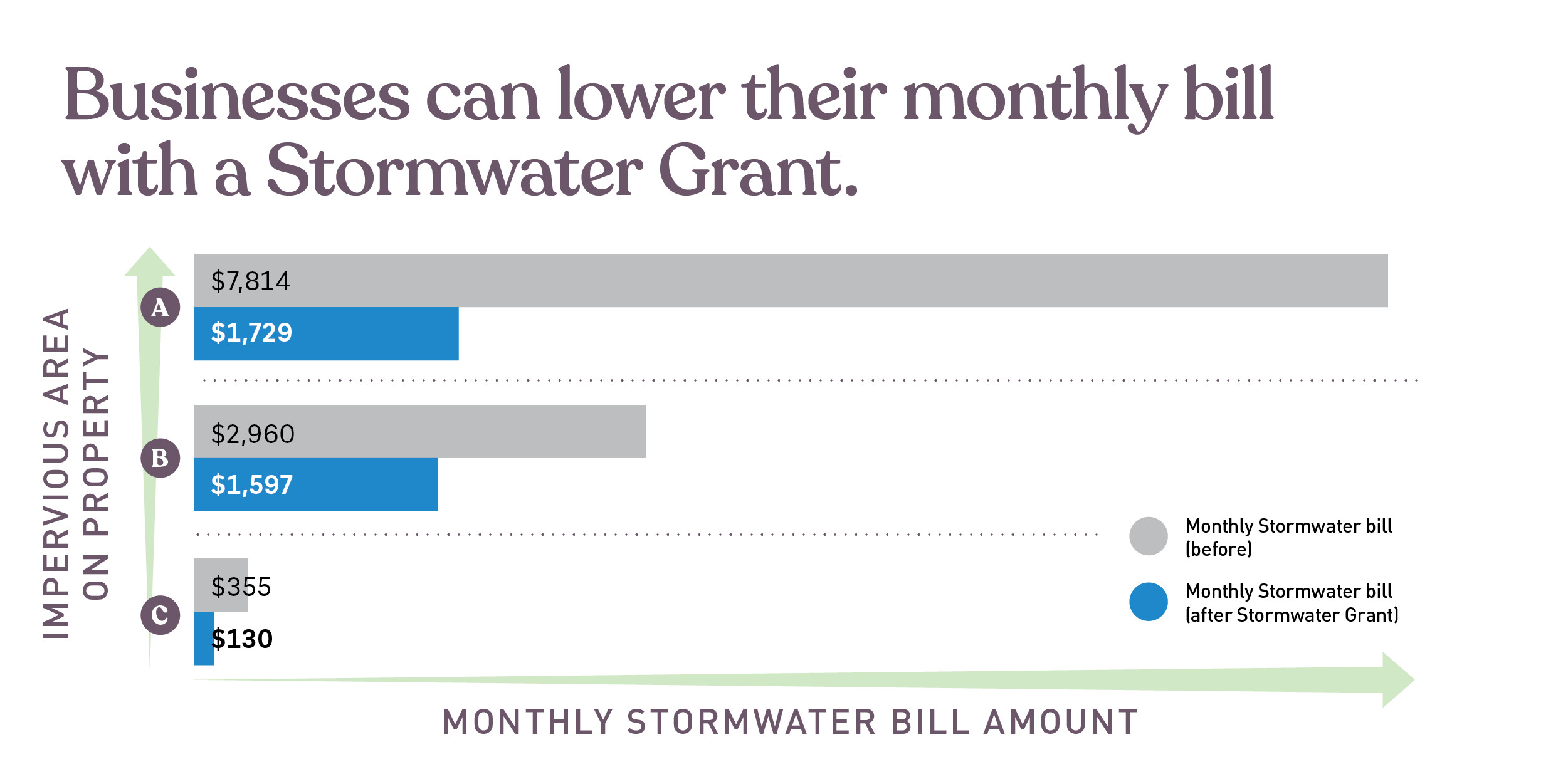
This bar graph represents pre- and post-Stormwater Grants billing data from 3 local businesses: A (large business), B (medium-sized business), and C (small business) – a non-residential property’s monthly stormwater charge is the sum of the Gross Area (the total area of the property) charge and the Impervious Area (the area that prevents infiltration) charge.
If you have a stormwater fee greater than $200, we want to partner with you!
Did you know that businesses with a stormwater fee of greater than $200 cause the most stormwater runoff (on/from commercial properties) in the city? Taking part in our Incentives Program will produce significant savings on your bill!
Further cultivating a ‘green’ economy, the creation of these stormwater projects on business properties requires the skill of various workers in the planning, design, construction, and maintenance sectors.
According to a May 2021 report conducted by the Sustainable Business Network of Greater Philadelphia, from 2011 to 2019, jobs in Philly’s green stormwater infrastructure (GSI) industry grew “by 13.3%, more than double the State's 6.3%,” as the city now includes approximately 10,300 GSI workers. The report also revealed that “52% of GSI workers earn at least $15/hour, even without a high school diploma or equivalent.”
(Stay tuned for more jobs-related impacts in our next Green City, Clean Waters 10-Year blog!)
Businesses, we encourage you to apply!
- Our next Stormwater Grant deadline is Oct 15th, 2021 – schedule your pre-application meeting now!
- Check out the Stormwater Grants web page for resources to help you complete the application, including the Stormwater Grants Application Guide, the “Get ready to apply” Pre-Application Checklist and a list of common mistakes.
- Stormwater Grant applications can be submitted on the Stormwater Grants webpage by clicking “Submit an application” starting August 1st.
Learn more about Stormwater Grant opportunities!

Celebrating Infrastructure Innovators
Several local businesses embracing stormwater infrastructure are true ‘green’ trailblazers — and they’re worthy of recognition.
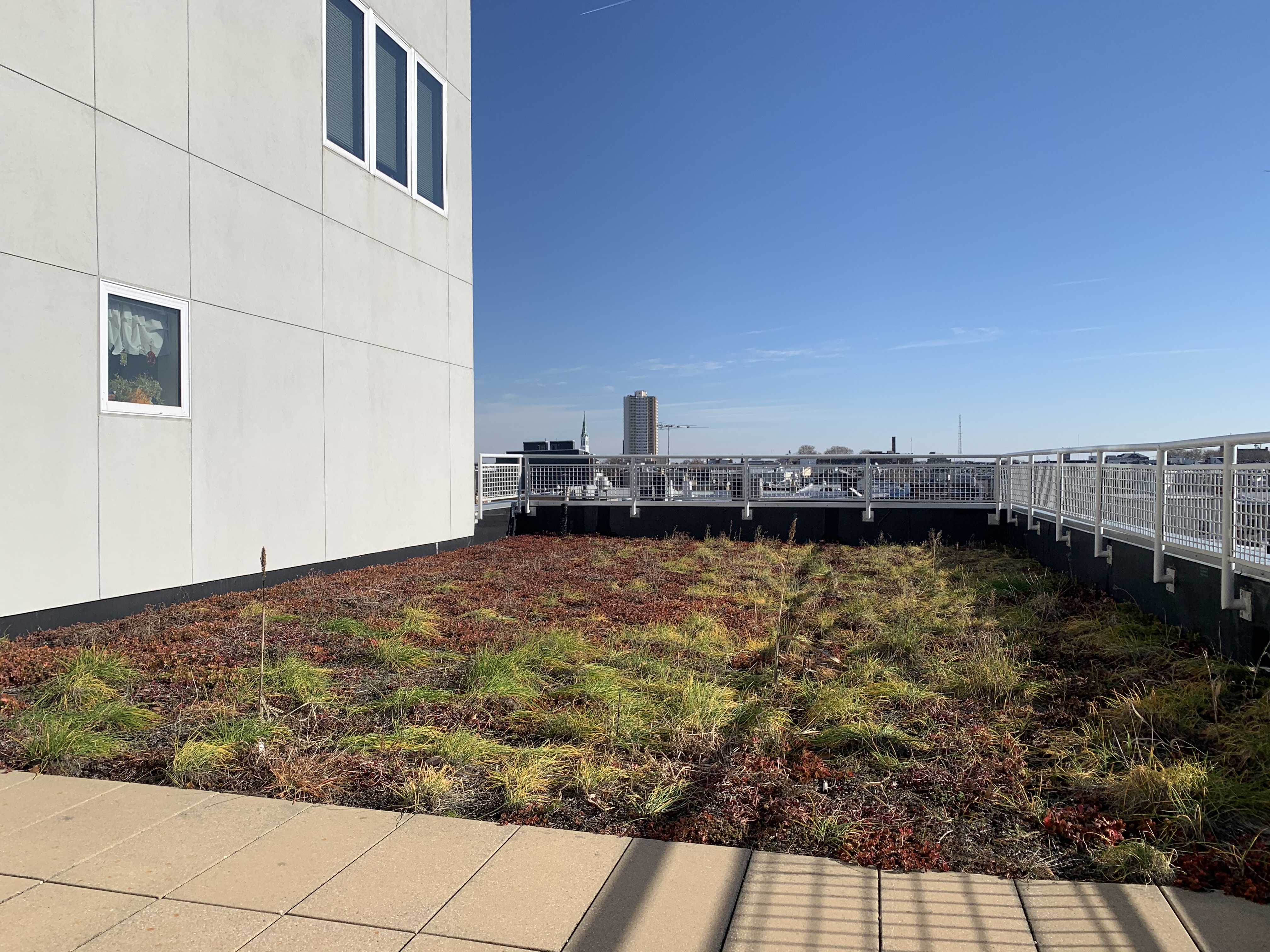
Birchwood at Cedars Village, a South Philadelphia-based senior living community for restricted income residents over the age of 55, installed a green roof that manages stormwater and helps reduce the urban heat island effect.
The Stormwater Pioneers award began in 2014 as private stormwater regulations and the Stormwater Grants program became an even more significant focus of green stormwater infrastructure implementation.
Since 2014, six projects have been selected as Stormwater Pioneers. The winning projects demonstrate innovation, excellence, and the ability to overcome technical challenges. The team, comprised of property owners, developers, and designers, collectively exhibit exceptional dedication to reducing stormwater runoff.
Learn about past winners!

A Renewed Approach
Over the last year, Stormwater Grants criteria have shifted even further towards an accent on community benefits.
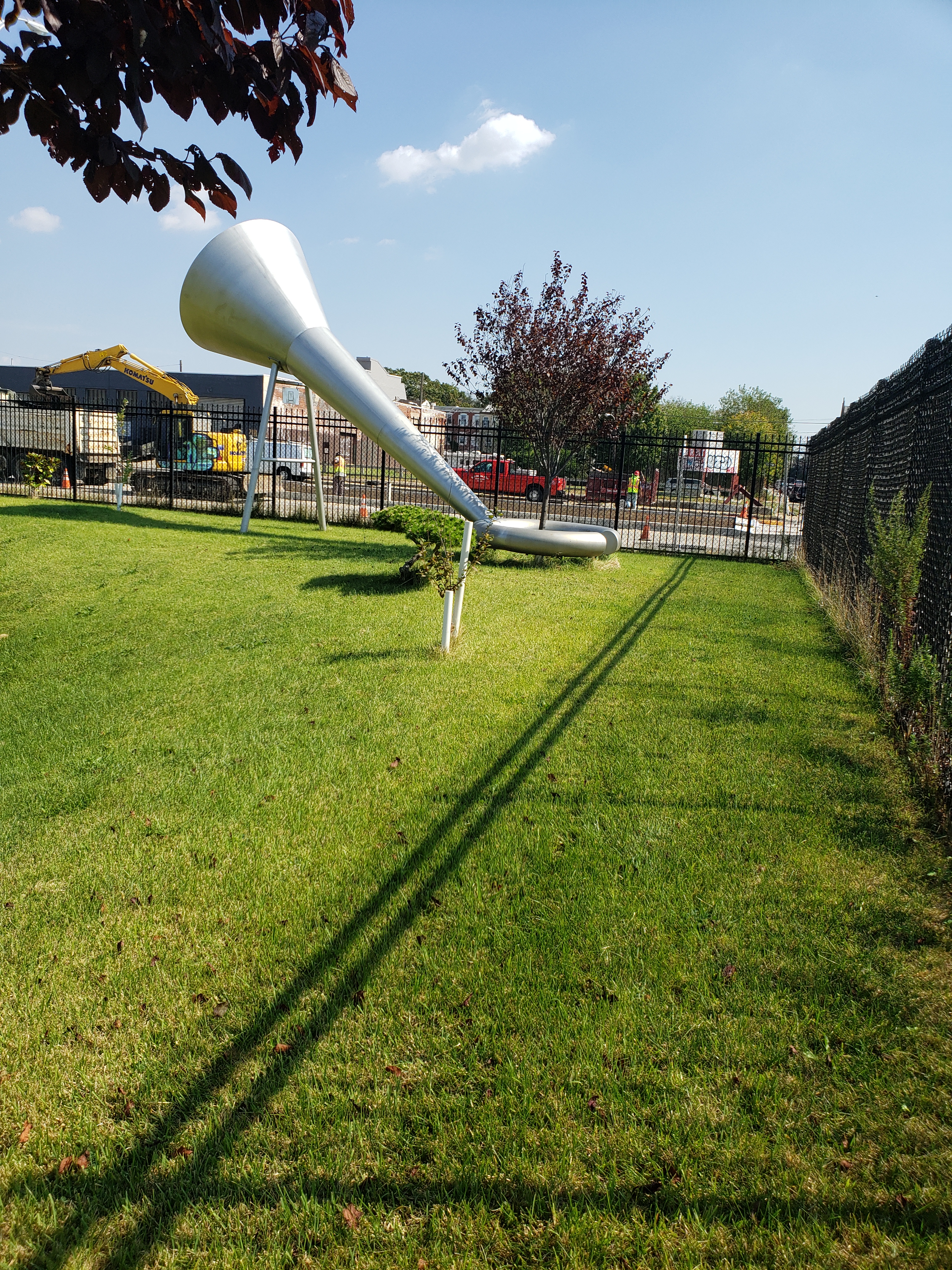
Stormwater Pioneer winner Chaes Food, a North Philly-based family-owned company distributing niche frozen foods, dairy products, and packaged goods, adorned its bioinfiltration basin’s drainage area with trees and a sculpture.
Now encompassed within the Stormwater Grants Application Guide, the revised Stormwater Grant criteria for proposal evaluation further emphasize prioritizing surface greenery, like vegetation, trees, and depaving on private non-residential properties. This includes featuring usable outside space on business properties, like a green space for employees, and allowing for positive economic impacts on the community, such as local job creation.
“As a business owner, you can help shape the future of Philadelphia by creating green jobs, adding more green tools, and enhancing the resilience of our local waterways and your business,” says Glen Abrams, Deputy Commissioner for Communications and Engagement.

Follow 10-year content on our blog + social media.
Thanks to you, there are many more stories to tell! Join us over the next several months as we reflect on 10 years of Green City, Clean Waters and celebrate the folks who helped make this all possible.
